HOW CAN WE HELP YOU? Call 1-800-TRY-CHOP
In This Section
New BEST Program Highlights CHOP Diversity and Inclusion Initiatives

The CHOP BEST Program supports initiatives that enhance diversity, promote equity, and foster inclusion in STEM within the community.
Children’s Hospital of Philadelphia Research Institute strives to create a community of diversity and inclusion that improves our individual researchers’ experiences while driving scientific discoveries forward. Committed to the belief that science benefits most from a wealth of perspectives and walks of life, this year the Office of Academic Training and Outreach Programs (ATOP) created the Building Excellence in STEM Together (BEST) Program. The new funding opportunity supports research with the potential to enhance diversity, promote equity, and foster inclusion in science, technology, engineering, and math among trainees, faculty, staff, administrators, and the surrounding community.
The six awardees of the inaugural program each received up to $5,000 in funding for their projects. Cornerstone learned more about each initiative and how it nurtures a culture of inclusion.
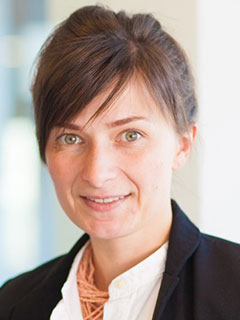
Marta Dusko
Navigating Work and Life as a Researcher in the United States
Marta Dusko, Principal Immigration Consultant, Office of Immigration and Visa Services
Our postdocs, scientists, faculty, and staff come from all over the world to help us improve children’s health. With BEST Award funding, Dusko and her team will lead a virtual course for foreign national researchers at CHOP to help them acclimate to work and everyday life in the United States.
“The Office of Immigration and Visa Services is thrilled to receive the CHOP BEST Award to be used toward impactful programming for the international community at CHOP,” Dusko said. “CHOP is a culturally diverse workplace comprised of staff from a variety of nationalities. Many CHOP employees are from abroad. To thrive in a diverse environment far away from home, these employees must have the skills for understanding and working with people of all backgrounds. It’s also important for them to understand American cultural norms and values.
“The CHOP Best award will be spent on Communicating Across Cultures: Skills for Understanding and Working in a Multicultural Workplace, a virtual course that will be offered to the foreign national research population at CHOP,” Dusko continued. “This course explores cultural awareness, tactics for surfacing conflict, and improving communication. It will teach foreign national employees how to better navigate working and living in the United States and will provide them with a chance to connect with other professionals and share their experiences in a nurturing setting.”
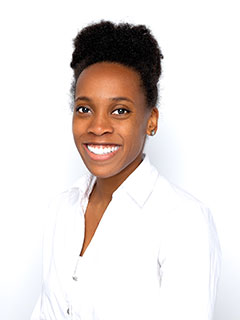
Janna Wilson
Giving Minority High School Students a Voice and Hope for the Future
Janna Wilson, Nursing Professional Development Associate and Multicultural Professionals Network Community Outreach Officer
With BEST Award funding, Wilson and her colleague, Lucie Ngaba, research technician at CHOP, partnered with departments across the hospital as well as the Big Brothers Big Sisters of America organization to welcome high school-aged students to a Multicultural Professionals Network (MPN)Youth Summit. The summit provides an immersive educational experience with the goals of networking with healthcare professionals, introducing students to wet labs, and the opportunity to be matched with a CHOP clinician, researcher, or health professional to gain coaching and mentoring. Their goal is to match 150 minority students over the next year.
“The Youth Summit we are hosting will give high school students of all backgrounds and abilities a voice and hope for their future,” Wilson said. “Oftentimes minorities or people of color are not given the same opportunities as their white peers due to lack of resources, funding, environment, socioeconomic reasons, and more. We will have our first cohort of students network and socialize with health professionals and peers, participate in lab tours, and listen and share their personal experiences relating to healthcare. With the platform, tools, and resources that will be provided, this cohort of students can speak on what diversity is to them. They can reshape what equitylooks like, and the students can advocate and use their voices to foster inclusion as they are the future of medicine and our future DEI champions.
“This initiative will use educational resources, mentoring and the CHOP enterprise to show young people that diversity, equity, and inclusion is essential to STEM. I want our youth to rewrite the narrative and allow these young, bright, multicultural minds the opportunity to have a voice and proudly represent their community in healthcare. I want people of all abilities and ethnicities to be equally represented and understood. Our future leaders come from many different walks of life, and I believe that should be shared and celebrated, which is why it is so important to encourage DEI in STEM.”
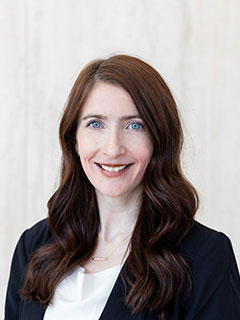
Kaitlin Lehmann
Sharing Unique Research Paths with Underrepresented Students
Kaitlin Lehmann, Clinical Research Program Manager, Center for Data-Driven Discovery in Biomedicine (D3B) and members of the D3B team.
D3B's BEST Award project is a Career Day that introduces underrepresented (Black, Indigenous, and People of Color) students to how D3B is making breakthroughs in pediatric cancer research, and how they might one day pursue careers in the field. In addition to Lehmann, the D3B group effort includes Ammar Naqvi, PhD, bioinformatics scientist, Emily Drake, clinical research assistant, Zeinab Helili, clinical research project manager, Alexa Plisiewicz, clinical research coordinator, and David Higgins, informatics program manager.
"An important part of improving diversity in the CHOP workplace is raising awareness about the types of roles that are available to historically underrepresented communities," Naqvi said. "Our hope is that our project will help under-represented students realize that there are plentiful job opportunities at CHOP for those interested in science, biology, computer science, and more."
The target audience is junior- and senior-year students from a historically disenfranchised sector of the Philadelphia community. Collaborating across D3b's several units, representatives from each unit will provide a presentation on their daily responsibilities, education history, and career paths.
"We hope these presentations will give a non-traditional perspective on how one could get involved in STEM, as our colleagues include data scientists, engineers, experimental biologists, project managers, clinical coordinators, and medical doctors," Naqvi continued. "Furthermore, this project will help students to start networking and building connections for their futures.
"We expect that this project will spark student interest for our longer-term goal of a six-week summer program," Lehmann said. "A critical component of this longer program will offer potential opportunities of further engagement and exploration for students most interested in receiving hands-on experience with D3b, including shadowing at the hospital, science-based projects, administrative duties, and future employment."
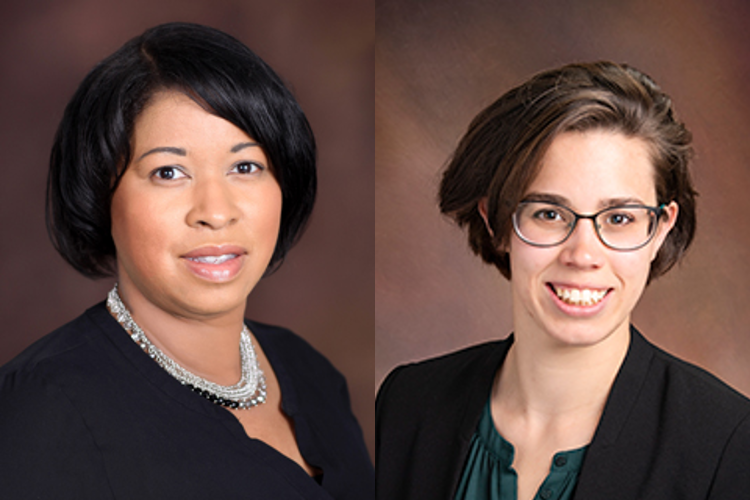
Ayana King-Pointer and Leila Bateman
Connecting Underrepresented Scientists in Autism Research
Leila Bateman, Manager, Clinical Data Management, Center for Autism Research and Ayana King Pointer, Senior Administrative Resource Coordinator.
King-Pointer and Bateman will use BEST Award funding to kickstart CAR’s Students and Trainees in Autism Research (STAR) Program. The STAR Program aims to provide a more sustained investment in students and trainees who are underrepresented or under-supported in autism research and care. Through STAR, current students are connected with a diverse group of former CHOP autism research students who went on to excel in doctoral training and careers in medicine, psychology, and research through individualized mentorships.
“Each year, dozens of talented undergraduate students intern at CAR, where they learn research skills on their journey to becoming future clinicians and scientists,” Bateman said. “Once students graduate however, not all will have their own mentors and networks outside of CHOP, which contributes to inequity in who ‘makes it’ in STEM careers and educational pathways.
“The STAR program has the biggest impact in helping students gain guidance and support from mentors who are not only experienced, but who can relate to their backgrounds, experiences, and identities. Given the underrepresentation of many groups in STEM, many students may not be able to ‘see’ themselves in STEM career paths. And when students from underrepresented groups in STEM do seek mentorship, they may be met with generic guidance that does not meet their particular needs.
“The STAR program helps students see people like themselves who are accomplishing their goals, helping to encourage a ‘can do’ attitude when times get tough. One of the most important things our speakers share is that their journey was not all ‘wins,’ and how they were able to persevere and reach next steps to accomplish their career goals. By investing in our trainees now with individualized mentorship, the STAR program will help to engage and retain a more diverse population of future experts — including future doctors and researchers at CHOP.”
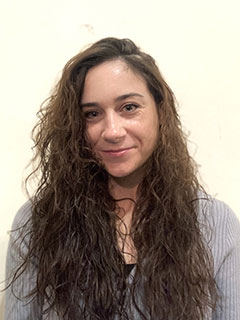
Samantha Tavlin
Creating a More Equitable, Inclusive, and Diverse Research Community
Samantha Tavlin, Clinical Research Coordinator, PolicyLab
Connecting the local community’s needs with CHOP researchers, Tavlin’s BEST Award project is a community event that seeks to learn how researchers can better support Philadelphia’s children and families, particularly when it comes to mental health. Tavlin believes that behavioral science researchers and practitioners have a responsibility to ensure that their work continually challenges the existing inequities in behavioral health systems and research.
“The goal of this project is to hold a community- and relationship-building event with CHOP researchers and Philadelphia children and their families. Local children and their caregivers will engage in a creative activity to share their thoughts about what they would like mental health researchers to focus on in their community,” Tavlin said. “Based on community members’ experience at the event, they can decide if and how they want to share their thoughts and opinions with the CHOP Research Institute on a larger scale. The hope from this activity is that mental health researchers can begin to build more positive and collaborative relationships with community members and work toward research that is always grounded in community needs, and hence more inclusive and equitable.
“By building relationships with community members in a way that challenges the unequal power dynamic between researchers and research participants and community members, we will take one small step towards a research community (of both researchers and participants) that is more equitable, inclusive, and diverse.”
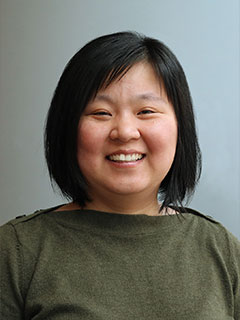
Jing Karchin
Providing more resources for the Spanish-speaking community
Jing Karchin, PhD, Clinical Research Project Manager
With BEST program funding, Dr. Karchin hopes to make treatment and research media more accessible and available for Spanish-speaking patients and caregivers, thus bridging any language or culture barriers that might make providing the best care challenging.
“Due to language barrier, Spanish-speaking patients have a relatively lower rate in follow-up clinical visits and participation in research studies,” said Karchin. “This research project is designed to provide more opportunities for Spanish-speaking patients in participation in both clinical care and research by making Spanish-translated resources readily available to them. This includes Spanish-translated study introductory video and surgical experience videos and information sheets.
Spanish is one of the most common foreign languages spoken among CHOP patients. While considering epidemiology of disease and conditions, Spanish-speaking patients represent a unique population. Making treatment and research media available to Spanish-speaking patients and caregivers provides a more inclusive, equitable, and comfortable environment for our patients, which helps engender trust within CHOP and surrounding Spanish communities, promotes equity and inclusion, and ultimately improves clinical outcome.”